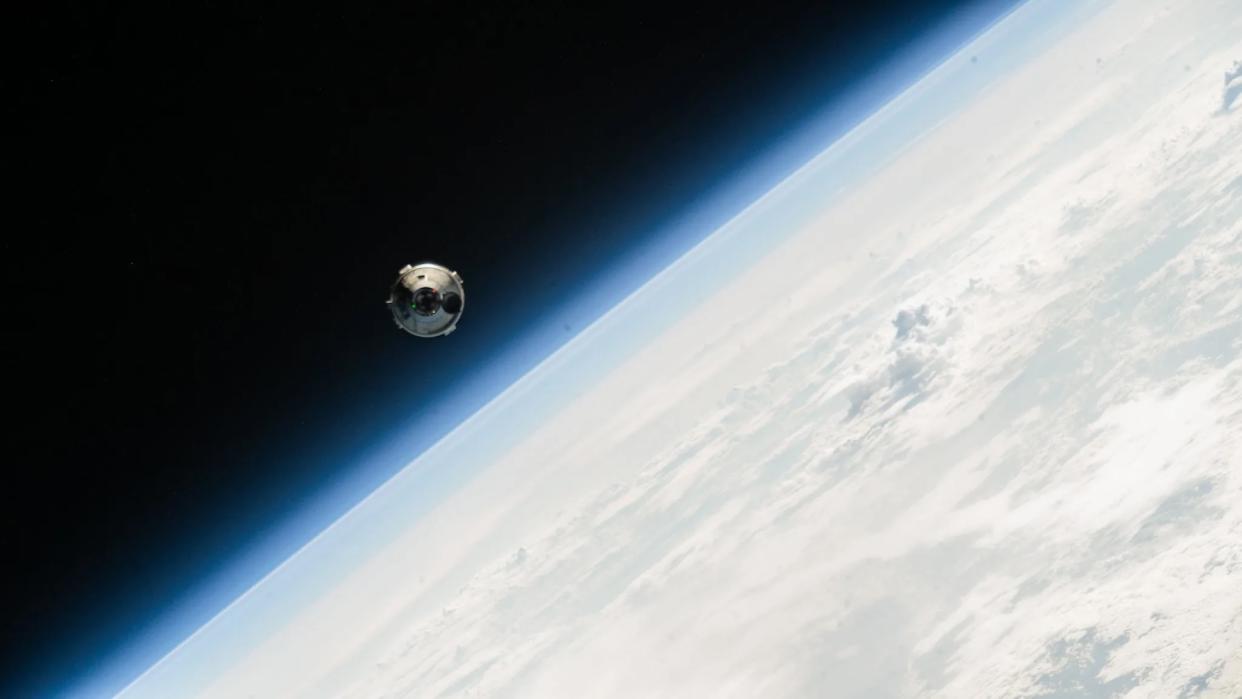NASA astronauts say they're 'confident' Starliner will bring them home, despite no return date in sight

- Oops!Something went wrong.Please try again later.
- Oops!Something went wrong.Please try again later.
Two NASA astronauts who are stranded on the International Space Station (ISS) after riding there aboard Boeing's Starliner say they are "confident" that the spacecraft can get them home safely.
Butch Wilmore and Sunita Williams have been living on the ISS for over a month. The astronauts rode to orbit on Boeing's Starliner spacecraft, which, after years of delays, successfully blasted off on its inaugural crewed flight from Florida's Cape Canaveral Space Force Station at 10:52 a.m. EDT on June 5.
But it wasn't long before a spate of issues began to plague the fledgling spacecraft. Engineers discovered five separate helium leaks in the spacecraft's thruster system and five failures of its reaction control system (RCS) thrusters, which will be essential for safely orienting the craft to reenter Earth's atmosphere.
With these issues in mind, NASA and Boeing delayed the return of the spacecraft to later this month, leaving the astronauts stranded aboard the ISS.
Still, the astronauts said they are sure they will be able to return home safely aboard Starliner.
"We've been through a lot of simulations," Williams said at a news conferenceWednesday (July 10). "I feel confident that if we had to — if there was a problem with the International Space Station — we could get in our spacecraft, we could undock, talk to our team and figure out the best way to come home."
Related: China's secret space plane has released another unknown object over Earth
During their time aboard the ISS, Wilmore and Williams have been performing a number of maintenance tasks and participating in scientific projects. Once a week, they have returned to the Starliner capsule to work through thruster issues with engineers at ground control.
The astronauts' stay has been largely safe but not entirely without incident. On June 27, a defunct Russian satellite broke apart in orbit, sending debris toward the ISS and forcing Williams and Wilmore, along with the other seven astronauts on board, to take cover inside their respective space capsules.
Due to limited battery life, Starliner was initially only approved to stay docked with the ISS for 45 days, narrowing the troubleshooting window. Fortunately, NASA officials revised that window, saying the batteries could be good for an additional 45 days, allowing the astronauts to stay in orbit well into fall.
Williams and Wilmore said they are confident that the Starliner will be able to return them home.
"We are ready. We will be ready unless the data shows otherwise," Wilmore said at a separate news conference Wednesday. "But right now, based on what we know, we're absolutely ready."
RELATED STORIES
—NASA set to launch 2 rockets into the northern lights
—China discovers strange glass beads on moon that may contain billions of tons of water
—NASA offers SpaceX $843 million to destroy the International Space Station
Key to Starliner's safe reentry is the ability of its RCS thrusters to perform a safe deorbit burn. That capability isn't in much doubt, Williams said at the news conference. But the one potential challenge to returning home that hasn't been fully assessed is the status of the RCS thrusters.
"We'll find out if they really are degraded," Williams said. "I think, with the number of jets we have, we're probably going to find something really positive."
"We've practiced a lot, so I have a real good feeling in my heart that this spacecraft will bring us home, no problem," she added.

